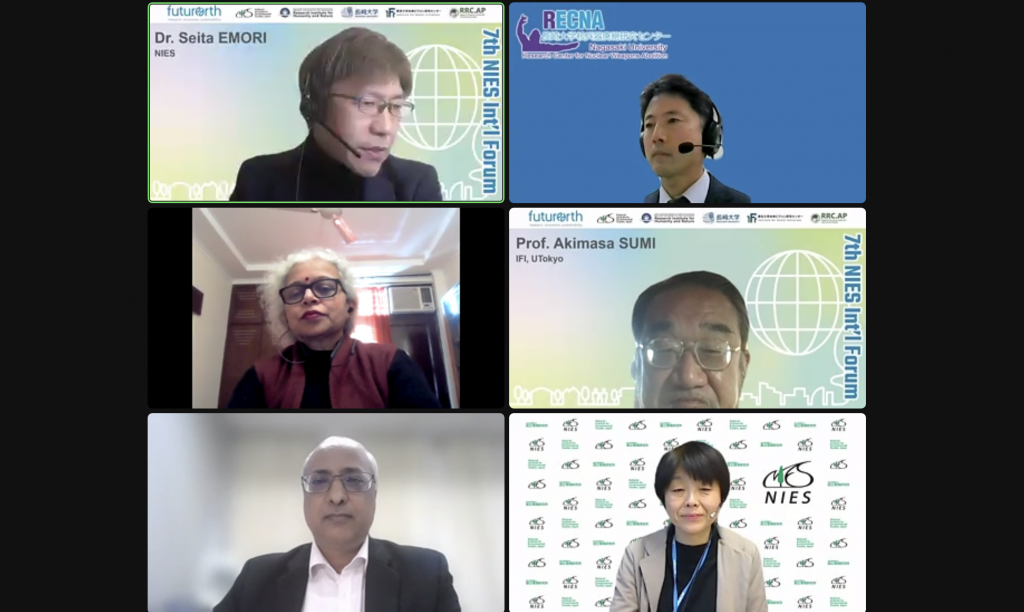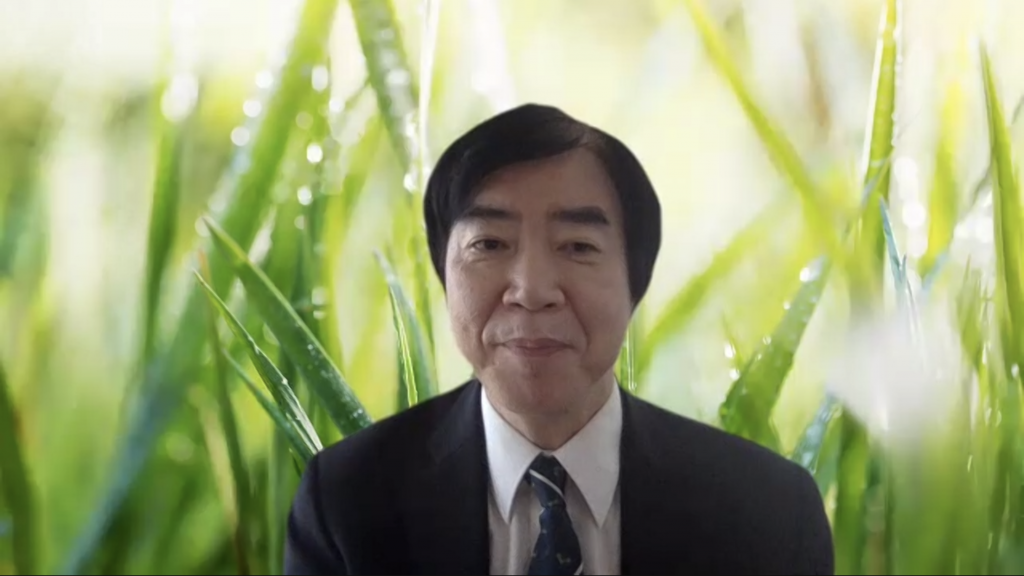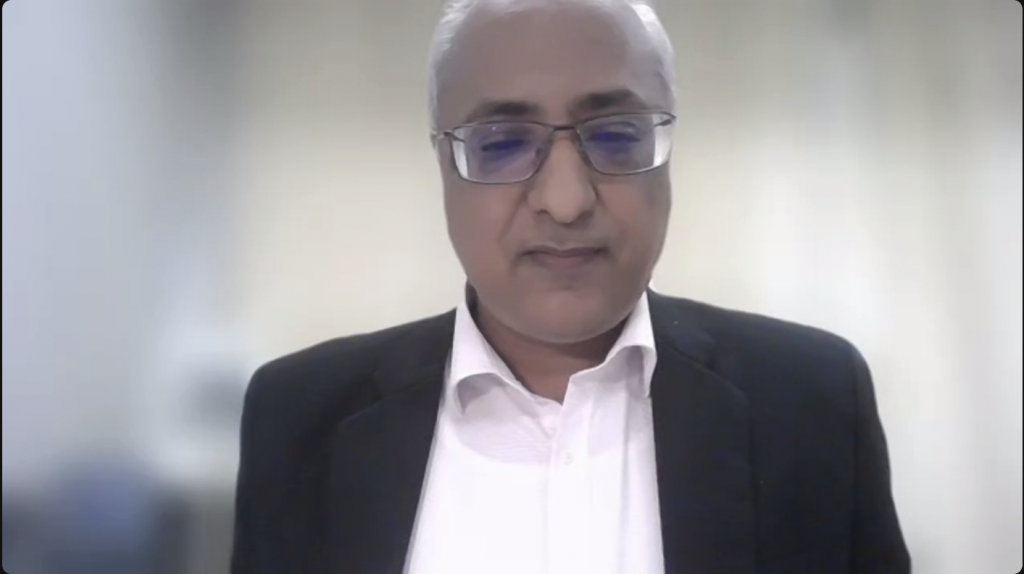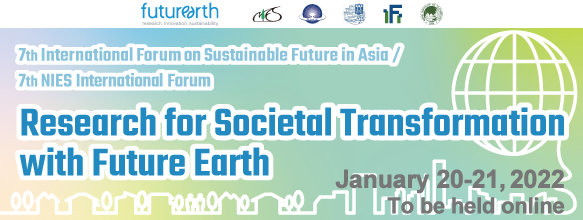By Mae Thiwari
January 20, 2022 – The Regional Resource Centre for Asia and the Pacific of Asian Institute of Technology (RRC.AP - AIT) co-organized the 7th International Forum on Sustainable Future of Asia with partners in Japan for global participants to share knowledge and dialogue with global audience on “Research for Societal Transformation with Future Earth”. The Director of RRC.AP and AIT Vice President for Academic Affairs took part in the forum to highlight “healthy science” and ways to bridge the gap between science and society.

The first International Forum on Sustainable Future of Asia was hosted by AIT in Thailand in 2016 with the National Institute for Environmental Studies (NIES) of Japan and the Institute for Future Initiatives of the University of Tokyo (IFI, UTokyo - Japan. The forum aims to facilitate international research collaboration to understand global and regional environmental change, to develop scientific evidence that feeds into societal decision-making processes, and to ultimately improve the state of the environment. NIES is also contributing to Future Earth, an international research program to accelerate transformations for global sustainability. The 7th International Forum was held online with Special Co-Organizers: the Research Institute for Humanity and Nature, and Nagasaki University.
“We, academia, have an essential mission to guide the next generations to understand  planetary health. This forum provides ideal opportunities for young researchers to interact with prominent experts in the wide range of scientific fields,” said Dr. Shigeru Kohno, President of Nagasaki University in his welcome remarks.
planetary health. This forum provides ideal opportunities for young researchers to interact with prominent experts in the wide range of scientific fields,” said Dr. Shigeru Kohno, President of Nagasaki University in his welcome remarks.
The Regional Resource Center for Asia and the Pacific was established 32 years ago as a joint initiative of AIT and UN Environment Programme. We bridge scientific understanding and provide capacity development on the sustainable development from the environment aspect for our stakeholders in the Asia Pacific region,” said Dr. Tsukamoto, highlighting RRC.AP - AIT’s role in facilitating societal transformation.
Along the same lines, Prof. Shobhakar Dhakal, AIT Vice President for Academic Affairs and world’s renown climate scientist, spoke in the panel discussion on Science Society, addressing the missing links in science and society. To sensitize the society, making climate change an issue close to everyone’s heart, including that of the policy maker’s,
Prof. Dhakal outlined the five missing links. Using the case of “decarbonization” which is urgently needed to divert the effects of climate change, the gap and opportunities in developing countries are local scientific knowledge base; proper assessment and communication of co-benefits of decarbonization; leapfrogging technology; science communication; and appreciation of economy-wide policy instrument.
 “I see huge opportunities for international scientific network and the research community,” Prof. Dhakal shared with the panelists and global audience, “to work with developing countries in terms of partnering with them to build the local knowledge base, and also to sensitize the local research community, especially science academies, to put decarbonization into priority, and also sensitize the role of these co-benefits and especially for science society dialogue.”
“I see huge opportunities for international scientific network and the research community,” Prof. Dhakal shared with the panelists and global audience, “to work with developing countries in terms of partnering with them to build the local knowledge base, and also to sensitize the local research community, especially science academies, to put decarbonization into priority, and also sensitize the role of these co-benefits and especially for science society dialogue.”
The two-day forum was held online on January 20 - 21, 2022. The first day was an open symposium for the general public whereas the second day featured three expert sessions on Valuing Environment, Net Zero GHG Emissions by 2050 in a Complex World with Stakeholders, and Systemic Risk. With panelists and researchers from various disciplines, the dialogue and exchange in two days were truly transdisciplinary, giving a preview of a possible Sustainable Future of Asia.
More about NIES International Forum: https://bit.ly/3rwlZ4q

